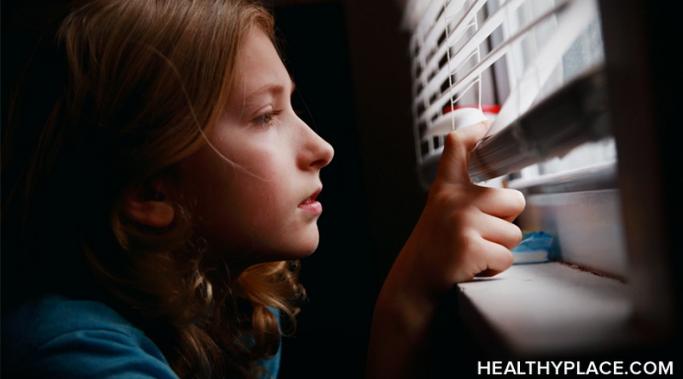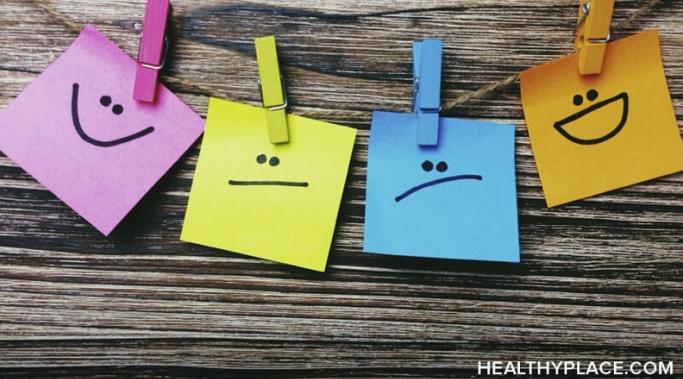I must confess, family therapy is something our family has never tried. My brother underwent intensive cognitive behavioral therapy when he was first diagnosed with anxiety and depression, and the facilitator recommended a family therapy session. My parents declined -- I guess the idea of everyone sitting down and talking about their feelings to a stranger didn't feel right at the time.
People with Mental Illness
We're all doing a lot of waiting recently due to COVID-19 restrictions -- but how does it compare to the ongoing waiting experiences of those with mental illness? Read on.
How to support someone from a distance is a question that I’ve been asking myself almost every day recently. There’s a literal distance between myself and my brother right now due to COVID-19 restrictions, but he’s also crying out for more freedom and control over his life – how do I balance giving support with giving space?
Caregiver guilt has been something that has featured heavily for me since my brother, Josh,* was diagnosed with anxiety and depression. For me, this caregiver guilt is a very uncomfortable emotion that I struggle to talk about -- and I want to pick it apart a little bit in this post.
Over the past few weeks, there has been a lot of media coverage about the suicide of television and radio presenter Caroline Flack. I didn’t know Caroline beyond seeing her on TV, but hearing about her death affected me deeply for some reason. I had a panicked sleepless night, and couldn’t shake the feeling of tearfulness that started as soon as I’d been told about the suicide. (Note: This post contains a trigger warning.)
Speaking openly about mental illness helps, but one thing I know for certain is that ''talking about your feelings'' cannot cure a diagnosable mental illness. To purport this idea is reductive and shows a deep-rooted misunderstanding of the complex physiological roots of psychiatric conditions. However, through supporting my brother in his experiences with anxiety and depression, I have come to appreciate that talking openly about emotions does play an extremely important role in a family where mental illness is present.
In the healthcare setting where I work, we employ a model of transactional stress. I have found this theory to be extremely helpful in how I support my brother, Josh,* through his depression and anxiety. Here’s a reflection on my experience.
A diagnosis of mental illness can be shocking for both the patient and their loved ones and, unfortunately, lead to a lack of support. Prior to my husband’s schizophrenia diagnosis, I held a skewed view of mental illness believed the stigma surrounding it. After his diagnosis, I repeatedly asked myself why it couldn’t be something more seemingly straightforward, such as anxiety or depression. I learned to accept his illness over time, but it is difficult when others are not able to do the same. The lack of support we've been shown in our struggle hurts.
This post was particularly difficult for me to write because mental health hospitalization is not easy to talk about thanks to mental health hospitalization stigma. This stigma is profound, and both the stigma and the hospitalization itself places great strain on both the individual requiring treatment and their loved ones. I struggled with what to write, who to write it for, and if I should even post at all. If you know me or have read my page, you will know that I write for HealthyPlace because my husband has a mental illness. He has a diagnosis of schizophrenia. He also writes for HealthyPlace as a coauthor of "Creative Schizophrenia." Since his last hospitalization, we moved halfway across the country, had our third child, bought a house to renovate, found good jobs, and learned to work through his minor relapses. A couple of days ago, his condition deteriorated. He suffered a significant relapse and displayed signs of dealing with a significant psychotic episode. Even though I blog about coping with a family member's mental illness, I dreaded what came next and the response from those around us. As I drove him to the hospital, I felt the sting of stigma over his mental health hospitalization.
Mental illness can impact a family in many ways, and the children of parents with mental illness need loving support. Children are very sensitive and sometimes clue into differences in behavior that adults miss. As adults, we are often caught up with other concerns: our careers, finances or the latest Netflix series, to name a few. We sometimes forget to pay attention to those around us and may overlook subtle changes. Children, on the other hand, notice everything. I say this from experience: children of parents with mental illness see and feel all of it.









